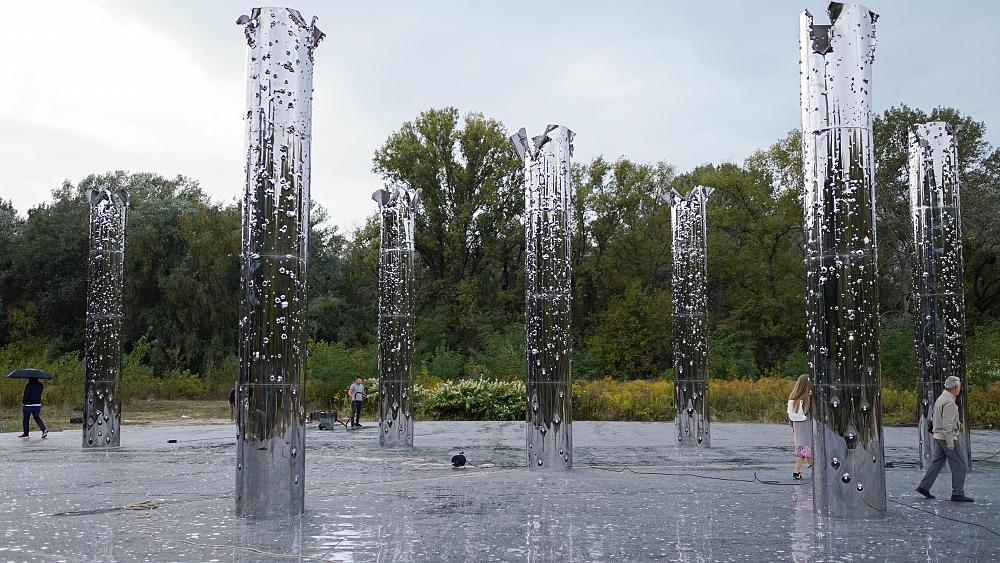
Ukraine has marked Holocaust Memorial Day by confirming its plans for a memorial centre on the site of one of the worst massacres of Jews during the Second World War.
Nearly 34,000 people were murdered by Nazi German forces and local collaborators over two days in September 1941 at Babyn Yar, a site on the outskirts of the country’s capital Kyiv.
The area is thought to be Europe’s largest mass grave containing over 100,000 bodies, including Jews and ethnic Poles.
Most of the victims were shot dead.
Over 1.5 million Jews were murdered in similar mass shootings across eastern Europe during the Nazi offensive against the Soviet Union.
The Babyn Yar site was largely neglected until five years ago but will soon host a large complex that includes places for religious worship, museum and exhibition spaces, and a structure depicting the victims’ names.
The Babyn Yar Holocaust Memorial Centre says the first synagogue on the site will be completed in time to commemorate the 80th anniversary of the massacre in September.
“It will transform a place of killing and destruction into a sacred space,” said Ilya Khrzhanovsky, the centre’s artistic director.
“It is designed in a way that everyone can connect to a life that was and is no longer. The construction of this complex will keep the story of the Jews of Ukraine and Eastern Europe alive.”
But the project has been controversial in Ukraine, particularly among far-right nationalists who do not accept local residents collaborated with the wartime massacres.
Memories and discussion of the Babyn Yar massacre were widely suppressed in Soviet-era Ukraine after the Second World War.
In recent years some have sought to rehabilitate wartime Ukrainian nationalists like Stepan Bandera, who led a movement that worked with the Nazis and killed tens of thousands of people during the war.
Several streets and buildings named after Bandera exist across the country.
Some official policies of rehabilitation were reversed by Ukraine’s current president Volodymr Zelenskyy, who is Jewish, when he removed nationalist historians from public office.
The former Jewish Agency chairman Natan Sharansky, who was born in Ukraine in 1948, noted that he knew nothing of the Babyn Yar massacre until he left the country — which was why the memorial centre “will help fill a vacuum in the field of Holocaust studies.”
When completed, the 150-hectare memorial complex will contain separate museums commemorating the Babyn Yar massacre and the wider Holocaust of Jews in Ukraine and eastern Europe.
There will also be a multimedia centre and a learning space for children.
Related posts:
Views: 0
 RSS Feed
RSS Feed

















 January 27th, 2021
January 27th, 2021  Awake Goy
Awake Goy  Posted in
Posted in  Tags:
Tags: 
















